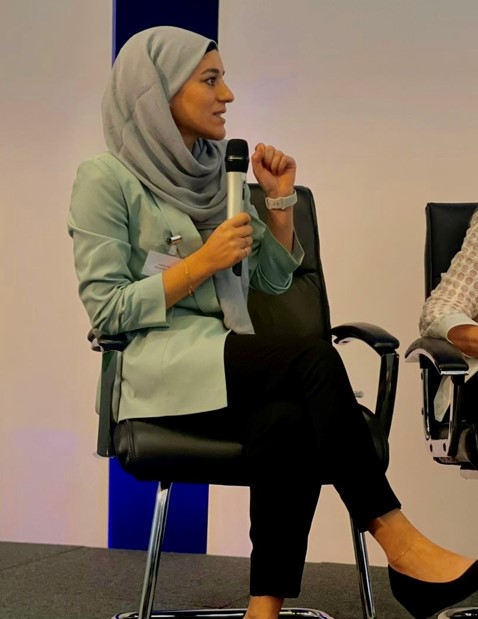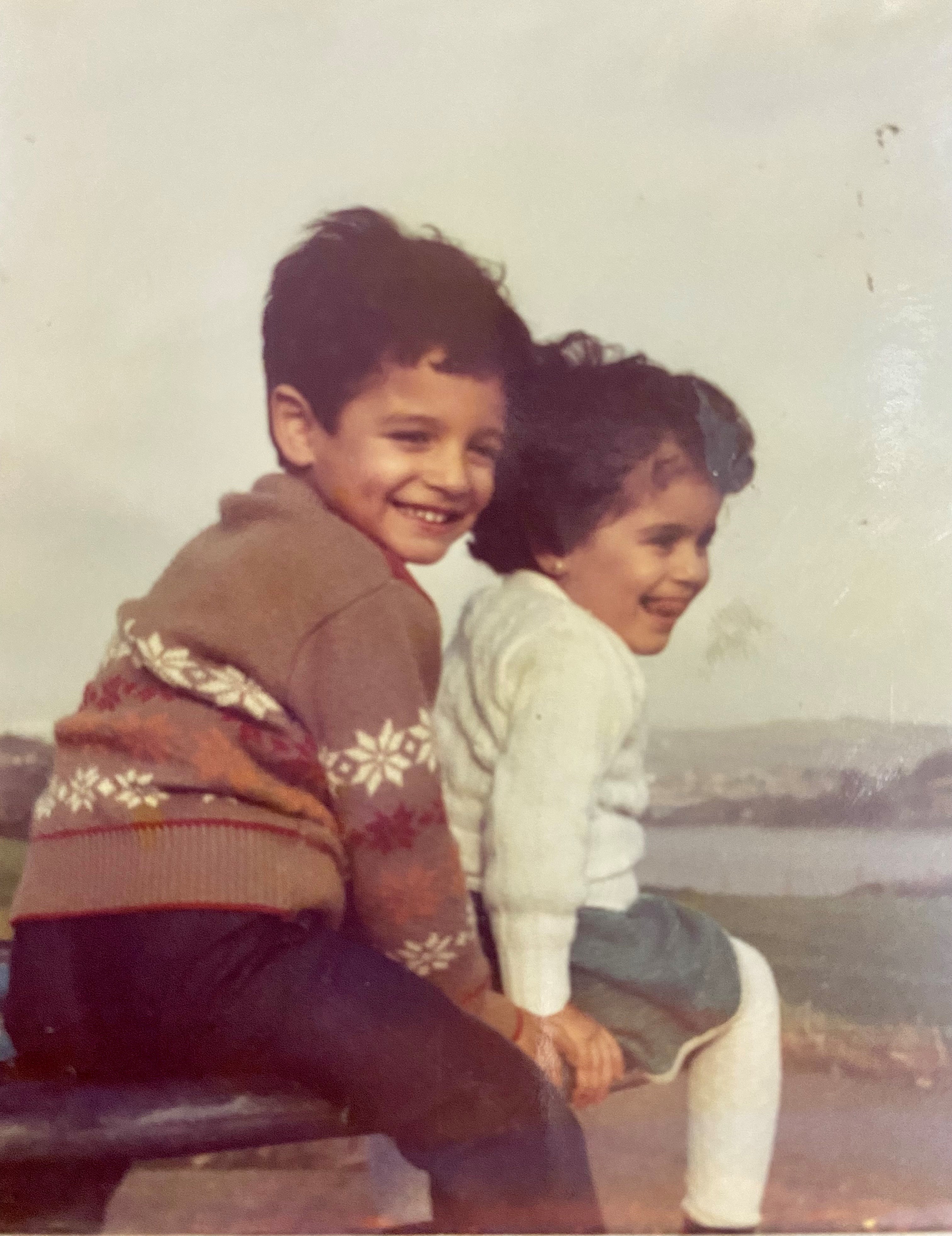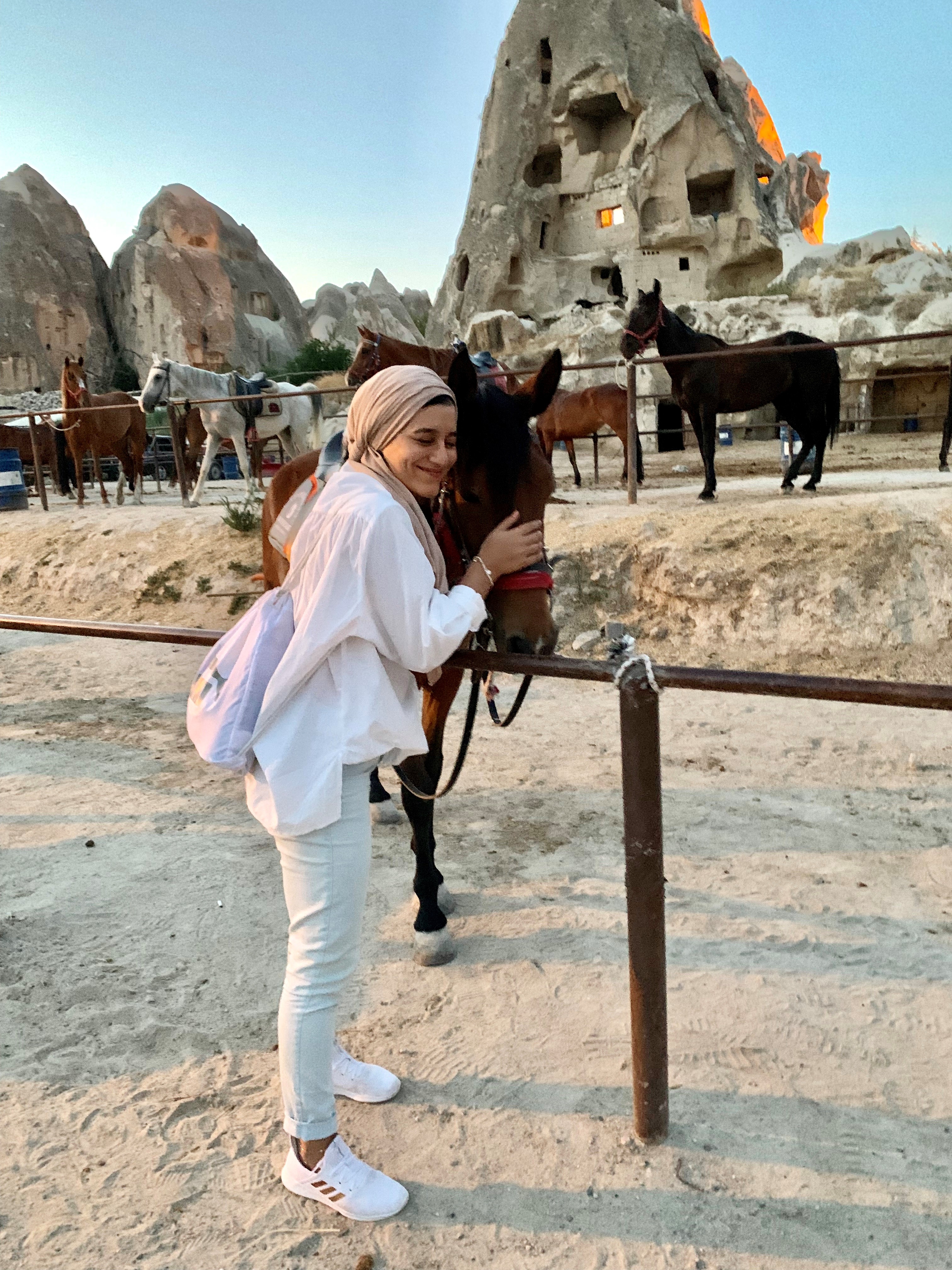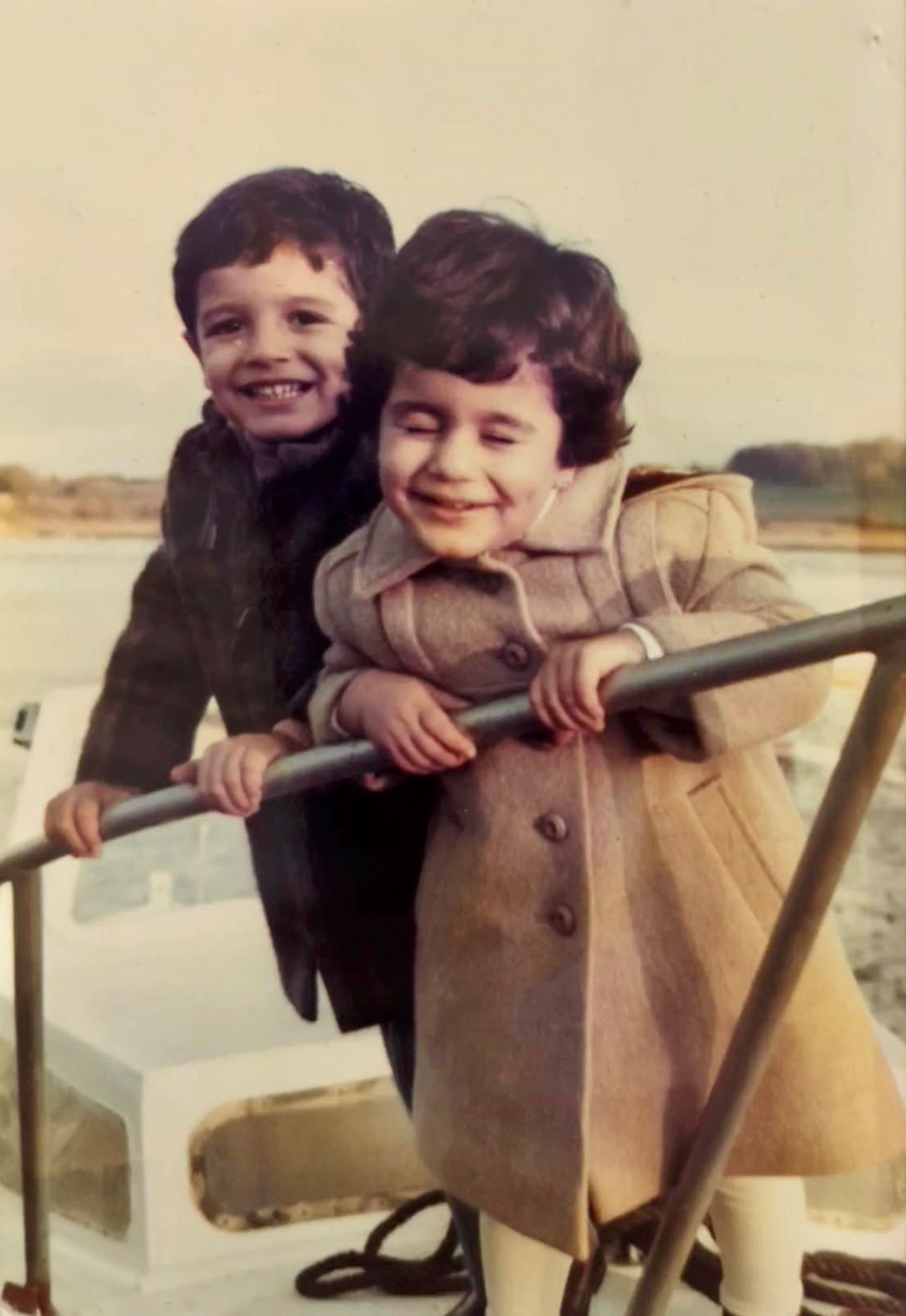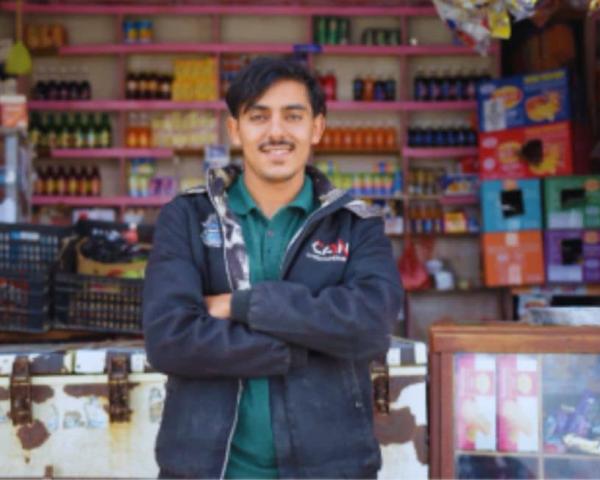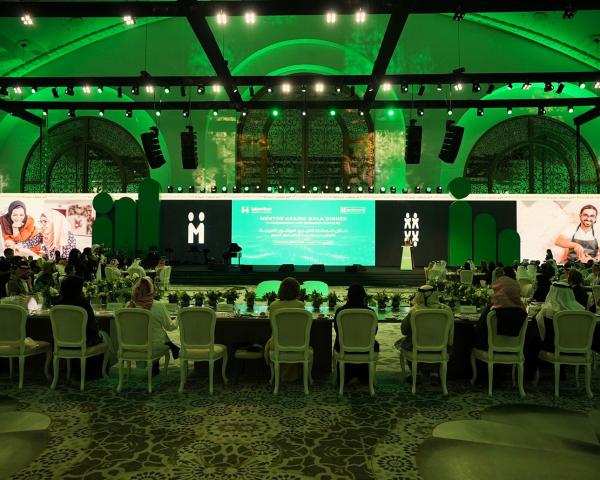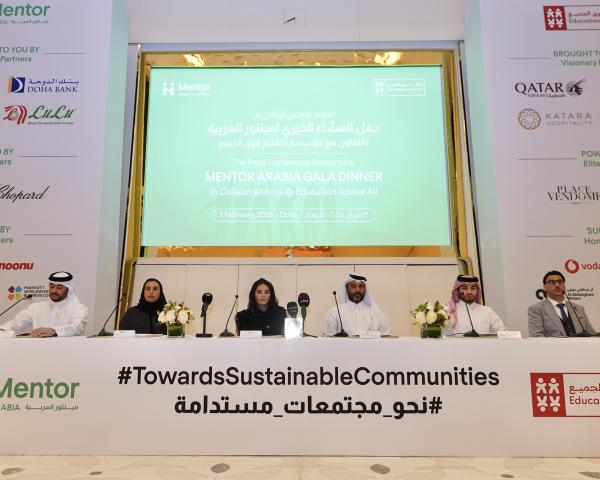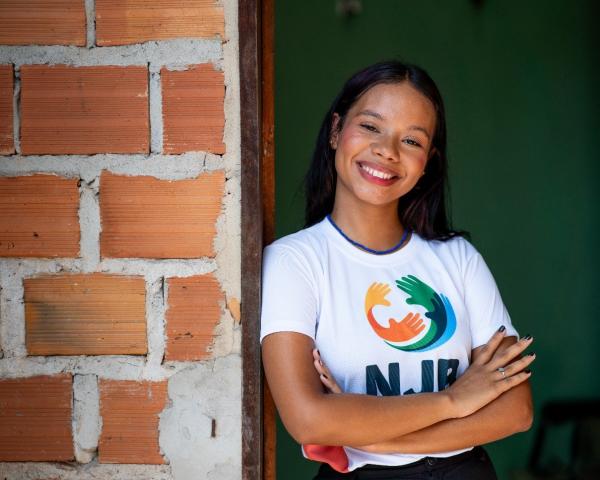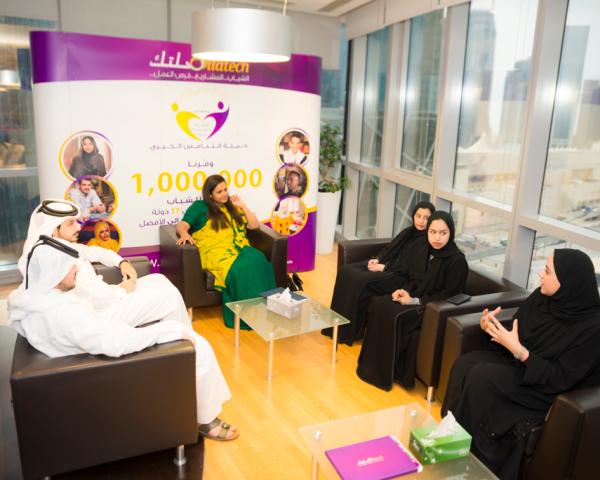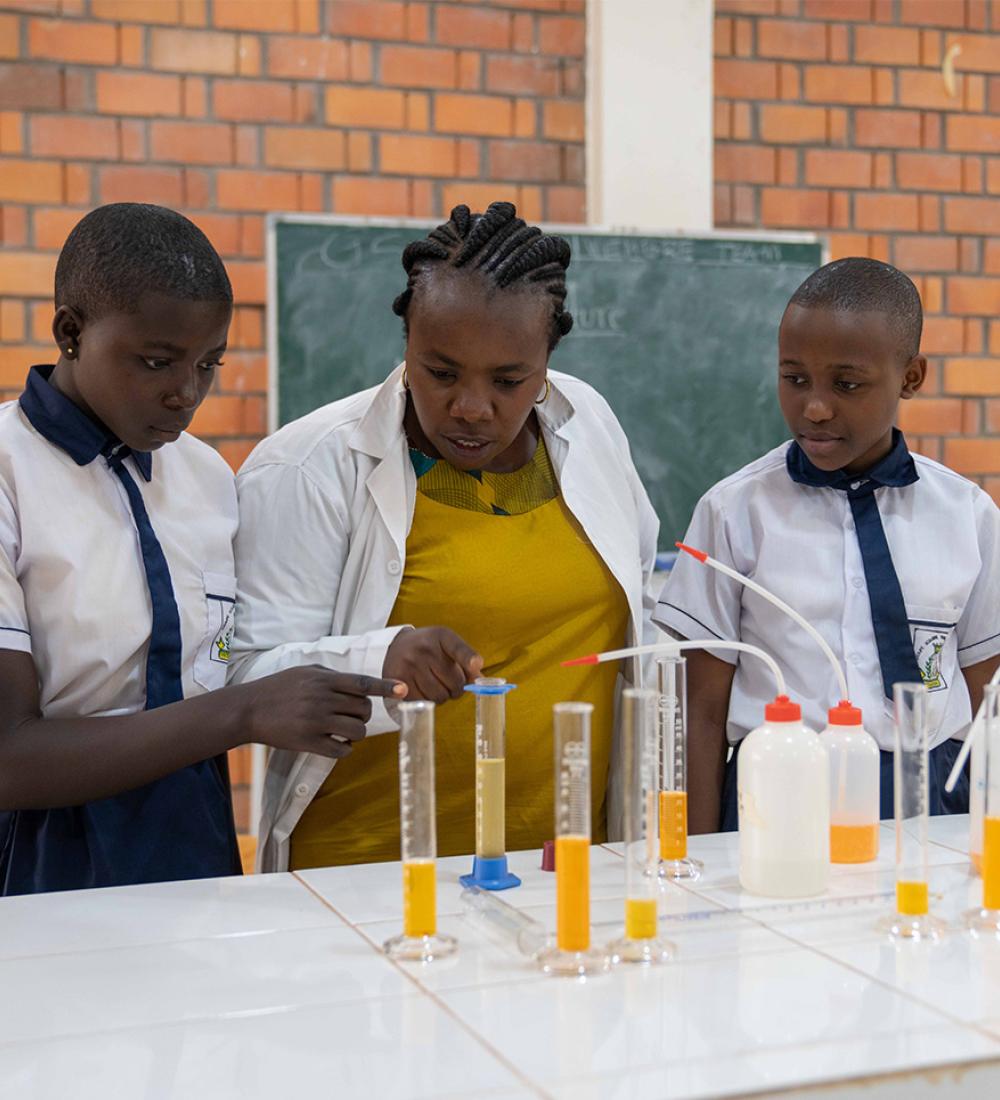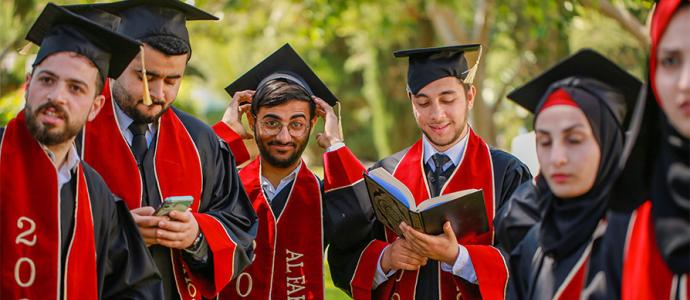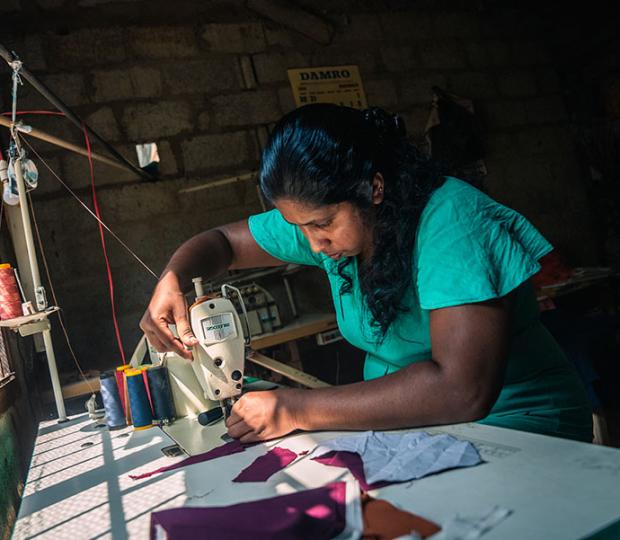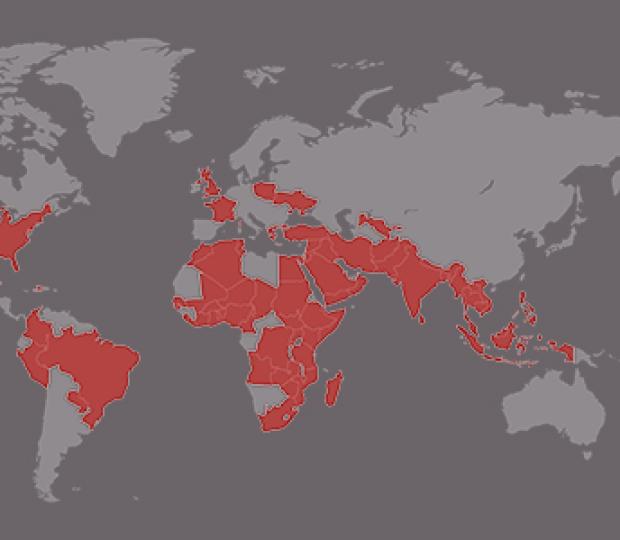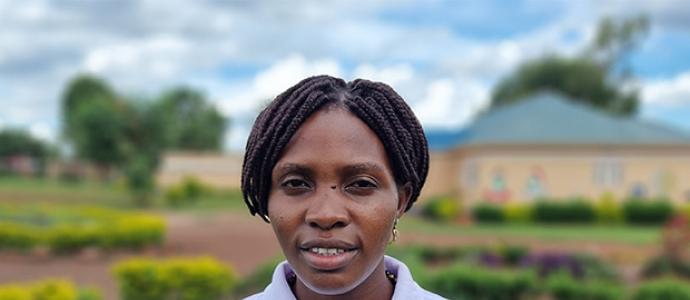Youth all around the world are facing increasingly complex challenges – and that’s even more so for young people affected by conflict and displacement. These challenges require that the youth be equipped with education and knowledge, as well as a range of skills that are crucial to live and thrive in the 21st century.;
Today is World Youth Skills Day, and 2022 marks EAA’s 10th anniversary. Celebrating both milestones, we speak with our Senior Engagement Specialist Dahlia Maarouf, as part of our Women of EAA series. Dahlia works with our Al Fakhoora programme on projects that help young people from disadvantaged backgrounds build their leadership and civic engagement skills to become successful, productive members of their communities.
Why Education above All?
Education Above All (EAA) shares my values. It is a foundation built on the understanding that beneficiaries are not merely recipients of aid – they are at the heart of our work, our efforts, and the design of our programmes.
EAA is also large and established enough to promote an environment of flexibility, creativity and thinking outside the box.
When and where did your path on this journey begin?
My eyes were really opened when I spent a year abroad in Morocco as part of my undergrad. I met so many street children every day. I was first shocked but then grew accustomed to sitting with them, chatting, buying them food. It was only after going back to visit Morocco a year later, that the situation really hit me. One boy was ten, the same age as my younger brother at the time. I naively asked him about his family, and he started crying. I left but couldn’t get him out my head; how did he survive on the streets? Where did he eat? Where did he sleep? Had he been sexually abused?
I went home and was convinced that I would forget about him, but I couldn’t stop questioning how children could survive so young on the streets, especially when most of the time they did have a family out there. The sheer trauma of being rejected and neglected as a child forced many of these children to raise themselves.
I didn’t forget about him.
Researching the situation showed me that the issue was far worse than I had ever imagined, from the reasons they left home, the addiction to glue to forget the pain from hunger or being sexually abused, to the thousands that risk their lives tied to the bottom of lorries or trying to swim across the ocean to make it to Europe. Heartbroken, I began looking into charities tackling this but couldn’t find one that I was convinced truly worked on rehabilitation and reintegration.
I decided to set up a UK-registered charity called “Walou”- in Moroccan dialect it means ‘nothing’, a play of words to reflect that sometimes, it takes nothing to save street children. The vision of the charity was to “invest in the future of street children”, with the core mission stating that “every child deserves a family, every child deserves a home”.
Are there particular memories you hold that motivated you to get to get you to where you are today?
In Islam we are told we are all brothers and sisters; many other religions encourage similar values and yet we don’t seem to uphold the values, it feels like we are brought up in a dog-eat-dog environment. I believed then and now that there must be a way you could inspire people to do one good thing for street children. If you could instil in even just one person the desire to help another, then that desire could be passed on to others - a snowball effect of goodwill- a “pay it forward attitude”.
If you could instil in even just one person the desire to help another, then that desire could be passed on to others - a snowball effect of goodwill- a “pay it forward attitude”.
What have been some of the biggest learnings/ takeaways you have now that you wish you had when you started?
You will learn more from the children and youth you work with than you can ever imagine possible - certainly more than in any training or degree. They have suffered and still suffer from unbelievable hardships and are yet some of the most inspirational people I have ever met. Their knowledge of conflict and resilience goes above and beyond any academically labelled experts in the field, heads of international NGOs, Ministers or high-profile individuals.
What have been some of your proudest and some of your hardest moments?
I spent over five years designing and developing a four-year three-level civic engagement programme. The vision behind it was to foster a positive civic-minded attitude and cultivate a “pay it forward” mentality.
The programme was extremely hard to design as I wanted to provide our students with 21st-century skills, the knowledge needed to achieve social and emotional wellbeing, and take the students on a journey of empathy. Each level is built on the one before, asking more from participants.
The hardest level to design was the final one - the students had to design and develop a shorter curriculum that they would deliver to children in schools in Gaza. Some consultants didn’t believe the students could do it - but I insisted that we should not underestimate the youth. It was all worth it, the final level was piloted in 5 schools in Gaza and caught the attention of the Ministry of Education who became interested in implementing it across all public schools in Gaza.
Is there something or someone in particular that inspires you in your field of work?
I admire many people for their characteristic traits. If I had to choose just one though, it would of course have to be my late father who was known amongst his colleagues, friends and everyone who met him as having excellence of character that was unmatched. His resilience, generosity, lack of judgement and integrity in everything he did was unparalleled. Oh, and of course his modesty and humbleness!
True happiness lies in being of service to others.
If there was one thing you wish everyone just naturally knew – what would it be?
True happiness lies in being of service to others. I’m not talking huge gestures, but if you can improve one person's chance at a better life - do it. In turn, they will hopefully do the same for someone else. Paying it forward has immeasurable effects.
If there was behaviour or action, you wished everyone could automatically adopt – what would it be?
I wish people could work on their character traits as much as their so-called credentials, career, bodies or finances. Qualities such as empathy, kindness, patience, determination and perseverance, temperance, integrity, and modesty… are all priceless qualities that have a massive impact not only on our lives but also on those around us.
Qualities such as empathy, kindness, patience, determination and perseverance, temperance, integrity, and modesty…are all priceless qualities that have a massive impact not only on our lives but also on those around us.
What does your sector of work most need to achieve the changes you wish to see in the world?
Collaboration – organisations, governments and individuals are all making huge leaps in various areas of international development, but so much more can and should be done.






